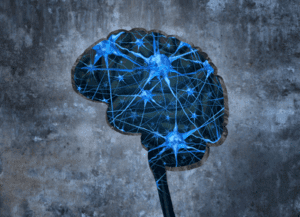26 Jul
Do you find you are losing or misplacing your car keys and eye glasses more often and that some days you feel like you are in a mental fog? Concerned about dementia setting in?
Although there can be age-related memory loss associated with changes in the brain over time, there are many other factors that can adversely affect memory. These include sleep deprivation (inadequate sleep or poor quality sleep), lack of exercise (poor oxygenation of the brain), side effects of medications, alcohol, drug abuse, poor diet (e.g., excess sugar/carbs), and medical conditions such as ADD, hypertension, and thyroid dysfunction. In addition, psychological factors related to mental stress, depression, and anxiety make it difficult to focus, learn and leads to forgetfulness.
Despite all these impediments to efficient memorization, we can use proven strategies to retain information and improve cognition. These strategies are listed below:
- Exercise the body. Strong memory requires a strong mind and body. Exercise increases oxygenation and important nutrients for the brain. This is essential to retooling and maintaining memories as well as fighting off dementia with age.
- Exercise the brain. Take dancing lessons, learn a new language, solve crossword puzzles, read more and perform other functions that increase mentation and mental problem solving. Reduce your time simply watching television. There’s a reason your TV is referred to commonly as the “Idiot box”.
- Avoid polypharmacy. More and more people today or taking too many prescribed medications without knowing how these medications interact and the harmful side effects such interactions may cause. Some medications alone may impair mental alertness. However, combining various medications can have a dramatic effect on memory and the ability to focus. Check with your medical doctor and have your list of medications reviewed.
- Avoid excess alcohol and drug abuse. Alcohol, particularly in high amounts, and many types of illegal drugs or drug abuse can cause serious damage to brain cells and memory.
- Eat healthy foods that nourish the brain. Eat diets high in fish, fruits, legumes, nuts, and vegetables. Reduce your intake of red meats, dairy products, saturated fats, and sweets. Sugar is a huge inflammatory nutrient that can wreak havoc on various organs of the body, especially the brain. Excess sugar can result in glycosolation (sugar coating) of brain cells. In fact, excess dietary sugar has been implicated as a possible contributor to Alzheimer’s disease with some medical physicians referring to this terrible killer disease as a form of tertiary diabetes.
- Reduce body weight. Studies show that excess fat can produce chemicals that can adversely affect mental processing and dull the senses.
- Get good quality and adequate sleep. Inadequate sleep can be very harmful to brain function. Chronic sleep deprivation can result in degeneration in the brain in the area known as the hippocampus that deals with short term memory and learning. Deep sleep, known as the REM (stage 5) of sleep is critical to brain function and crystallizing memories. Too much caffeine can interfere with deep sleep and lead to irritability and forgetfulness.
- Reduce mental stress in your life. Stress can interfere with neuronal activity and communication between the frontal lobe and other areas of the brain, making it harder to concentrate and focus. To address stress, first identify causes of stress and develop strategies to reduce or eliminate recognized sources of stress. Examples include:
-
- cutting up a credit card and creating a strict budget to overcome stress from being in too much debt,
- starting a healthy diet and exercise program if you are stressed about being overweight and out of shape, and
- resolving an emotional conflict by talking and working things out when a bad relationship with someone weighs heavily on you.
Chronic or severe stress can cause degeneration of neurons in much the same as chronic sleep deprivation. Remember, some stress in life is unavoidable. However too much stress is created by our own actions and lack of discipline. If you do not control life, life will control you. Reduce stress in your life and slow down the clock. Instead of saying I can’t wait for this day to end, say I wish this day would never end. Think more clearly and enjoy your life.
- Become motivated. Do not let important information float by you. To encode a memory, you have to want to remember it. Make a conscious effort to memorize new information.
- Plan ahead and prioritize important information.
- Much of what we forget is not the result of organic changes in our brain. It often deals with inattention. Try to eliminate distraction and interruptions and concentrate on information you want to remember.
- Make check lists that work for you. Keep them short and handy.
- Concentrate on learning new skills in the morning rather than in the evening. The brain functions better in the morning especially as we age.
- Avoid multi-tasking and take breaks when needed. Meditate and relax when you can. Never pass up the opportunity to take a vacation.
References:
Mind, Mood, Memory – Massachusetts General Hospital, 2016
Dr. Richard Bunch – Improving Cognitive Function and Memory in an Aging Workforce, National Ergonomics and Exposition Presentation, Las Vegas, Nevada, 2015.
Dr. Richard Bunch – The Enemy in the Mirror Motivation Seminar, 2016.


![]()